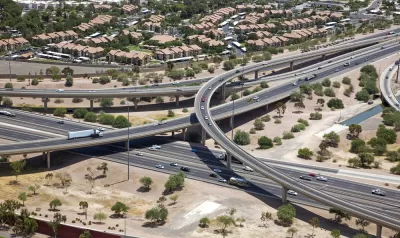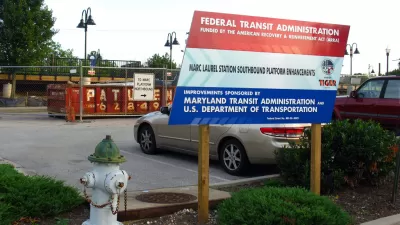Secretary Pete Buttigieg's statement that the per-mile-tax concept "shows a lot of promise" caused a stir, but a spokesperson for the U.S. Department of Transportation later claimed it won't be part of Biden's forthcoming infrastructure package.

After Transportation Secretary Pete Buttigieg hinted at a mileage tax during an interview, the U.S. Department of Transportation clarified last Saturday that "the Biden administration was not considering a plan to tax drivers by the number of miles that they drive," reports Connor Perrett for Business Insider.
When "specifically questioned about the efficacy of vehicle miles traveled (VMT) tax, which would tax drivers by the number of miles they drive and is seen as an alternative to taxing gasoline," during a CNBC interview last week, Buttigieg said the idea "shows a lot of promise," but made no specific promises. "You're hearing a lot of 'maybe' here because all of these things need to be balanced and could be part of the mix," he said.
Critics from both sides of the aisle worry that a VMT tax would unfairly tax people who cannot afford to live close to their jobs, disincentivize fuel-efficient vehicles, and raise privacy concerns when it comes to the data collection involved.
"To be clear, he never said that VMT was under consideration by the White House as part of this infrastructure plan—and it is not," Department spokesperson Ben Halle told Insider's Adam Wren. A $3 trillion infrastructure plan, expected to be unveiled this week, is expected to consist of two bills. "The first bill is expected to have a focus on upgrading bridges and roads while the second would focus on elements like education and childcare."

Planetizen Federal Action Tracker
A weekly monitor of how Trump’s orders and actions are impacting planners and planning in America.

Restaurant Patios Were a Pandemic Win — Why Were They so Hard to Keep?
Social distancing requirements and changes in travel patterns prompted cities to pilot new uses for street and sidewalk space. Then it got complicated.

Maui's Vacation Rental Debate Turns Ugly
Verbal attacks, misinformation campaigns and fistfights plague a high-stakes debate to convert thousands of vacation rentals into long-term housing.

In California Battle of Housing vs. Environment, Housing Just Won
A new state law significantly limits the power of CEQA, an environmental review law that served as a powerful tool for blocking new development.

Boulder Eliminates Parking Minimums Citywide
Officials estimate the cost of building a single underground parking space at up to $100,000.

Orange County, Florida Adopts Largest US “Sprawl Repair” Code
The ‘Orange Code’ seeks to rectify decades of sprawl-inducing, car-oriented development.
Urban Design for Planners 1: Software Tools
This six-course series explores essential urban design concepts using open source software and equips planners with the tools they need to participate fully in the urban design process.
Planning for Universal Design
Learn the tools for implementing Universal Design in planning regulations.
Heyer Gruel & Associates PA
JM Goldson LLC
Custer County Colorado
City of Camden Redevelopment Agency
City of Astoria
Transportation Research & Education Center (TREC) at Portland State University
Jefferson Parish Government
Camden Redevelopment Agency
City of Claremont





























